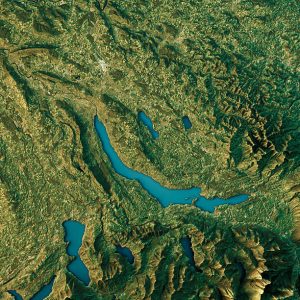
When engaging in land transactions, the role of surveys cannot be overstated. A land survey is a crucial step in the due diligence process, providing valuable insights into the boundaries, topography, and potential challenges associated with a piece of land. In this article, we’ll delve into the significance of surveys in land transactions and why they are indispensable for both buyers and sellers.
- Establishing Property Boundaries: The primary purpose of a land survey is to accurately establish property boundaries. By identifying the exact dimensions and corners of a piece of land, surveys prevent boundary disputes and legal conflicts between neighboring landowners. This clarity is fundamental for defining ownership and avoiding potential legal complications in the future.

- Identifying Easements and Restrictions: Surveys uncover easements and restrictions that may affect the use and development of the land. Easements grant the right to use a portion of the property for specific purposes, such as utilities or shared access. Understanding these encumbrances is vital for both buyers and sellers, ensuring that there are no surprises that could impede development plans.
- Topographical Mapping: Surveys provide valuable topographical information, detailing the natural features of the land such as elevation changes, slopes, and bodies of water. This information is crucial for land development projects, helping architects, engineers, and builders plan and design structures that are both safe and compatible with the landscape.

- Zoning Compliance: Municipal zoning regulations play a significant role in land use. Surveys assist in determining whether the property complies with local zoning laws, ensuring that any planned developments adhere to the permitted land uses and density requirements. This is particularly important for investors looking to maximize the potential of a piece of land.
- Title Insurance and Lender Requirements: Title insurance, a standard component of real estate transactions, is often contingent on a satisfactory land survey. Lenders require accurate surveys to mitigate the risk associated with the property’s boundaries and potential legal issues. A clear survey enhances the chances of obtaining title insurance, providing confidence to both lenders and buyers.
- Resolving Property Disputes: In the event of property disputes, a recent and accurate land survey can be instrumental in resolving conflicts. Whether it’s a disagreement over boundaries or property encroachments, having a survey on hand provides an objective and legally recognized document that can be used to settle disputes through negotiation or legal means.
- Facilitating Land Development: For developers, surveys are indispensable in the planning and execution of land development projects. Accurate boundary information, coupled with topographical data, allows developers to optimize the layout of subdivisions, roads, and infrastructure. This precision is essential for creating functional and aesthetically pleasing communities.
In the complex landscape of land transactions, surveys emerge as essential tools for mitigating risks, ensuring legal compliance, and facilitating smooth transactions. Whether you are a buyer, seller, or developer, investing in a thorough land survey is an investment in the clarity, security, and successful development of the land. Understanding the role of surveys empowers stakeholders to make informed decisions, paving the way for responsible land use and sustainable real estate practices.













